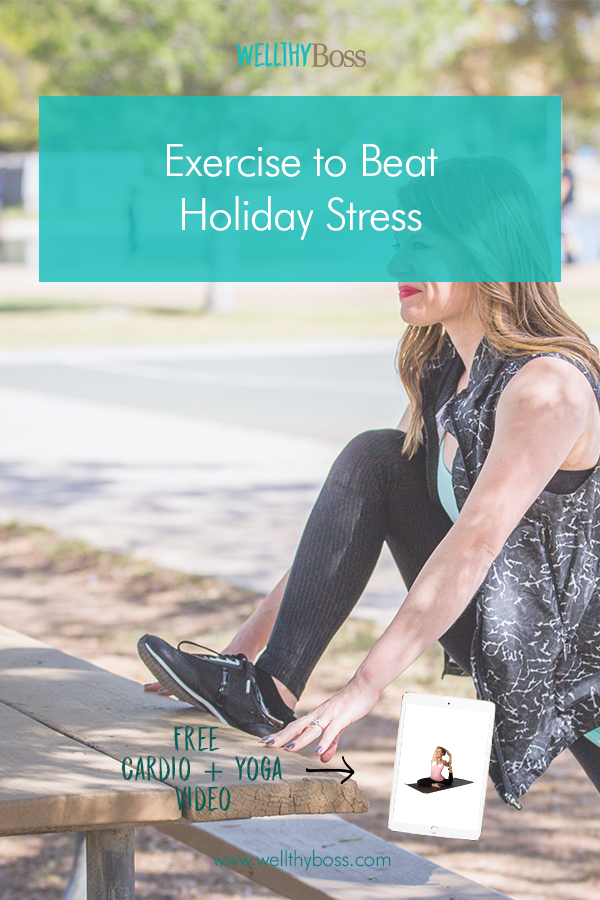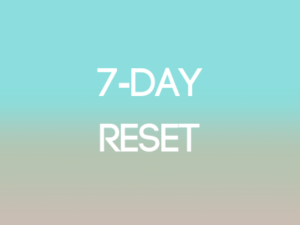
Most of us who try to maintain a healthy lifestyle tend to zero in this time of year on doing damage control for our waistline. (Just how many steps do I have to walk to burn off that sugar cookie?) And for good reason. The sugary, creamy, carb-loaded, rich decadence of a month of celebration seems to slip in at every turn—tempting mercilessly those of us who are battling to keep that number on the scale in check.
However, focusing on only the scale can lead to frustration and can also ignore a greater need during this season. In an American Psychological Association survey, a full 22% of Americans describe themselves as being under what they call an “extreme level” of stress. The holidays can easily tend to elevate these levels of stress. Not only are we out of our normal routine to accommodate all the extra’s–social events, shopping, and decorating to name a few—but this time of year tends to highlight any less-than-idyllic family dysfunction, financial strain, etc.
The APA also points out that even though we may take time off from work, the pressures and demands of our jobs don’t evaporate. They’re still there, needing to get done, whether we’re burning the midnight oil or putting it off until the new year.
Boy, if you weren’t depressed before, bet you are now! (Sorry about that!)

But isn’t it better to anticipate any potential pitfalls of the upcoming season so you can stay one step ahead of the Scrooge blues? Exercise is a powerful antidote to stress and even depression, often prescribed by psychologists for their patients. (Of course, if you have clinical depression or suspect you may, always discuss treatment options with your mental health professional. For help locating a professional, click here.)
For a one-two punch, try taking your exercise outdoors—even if that means bundling up. During the shorter hours of winter days, our bodies naturally dip in serotonin levels (which also cause us to be especially enamored of simple carbohydrate-laden foods. Which is so not fair, by the way!) What helps replenish serotonin levels? Well, exercise for one. But also sunshine!
You may also want to look at the exercise type and intensity levels from a mood-boosting perspective. Aerobic exercise tends to be more effective at relieving stress because of its unique oxidative properties. (Source: Psychology Central)
Listen to your body to determine whether all-out effort is the appropriate choice on any given day. Sometimes if you’re feeling really frazzled and worn down, a brisk walk or gentle bike ride may be more effective at clearing the mental cobwebs than muscling through a monster session.

In fact, if you’re feeling a little frayed, an intense workout may seem too overwhelming to do at all. Add to that the fact that moderate to intense cardio sessions lasting more than 45 minutes can actually elevate cortisol levels, and it just makes sense to give your body some gentle, “feel-good” days now and then.
Finally, if you find yourself fumbling from your normal routine because of travel and schedule changes, find yourself a virtual fitness program like 14 Days to Fit. Having a virtual fitness option can be a great choice when your circumstances don’t permit you to hit up your local gym or exercise studio, but you need a little social support and guidance.
So even though exercising for your mood may not necessarily equate to mega calorie burning, feeling more zen may help you get a handle on stress eating and help you maintain more exercise consistency during stressful periods, because you no longer need to subscribe to the “all-or-nothing” mentality.
Stay healthy this holiday season so you can stay happy!
P.S. For an extra bonus on coping with holiday family stress, check out this video.





